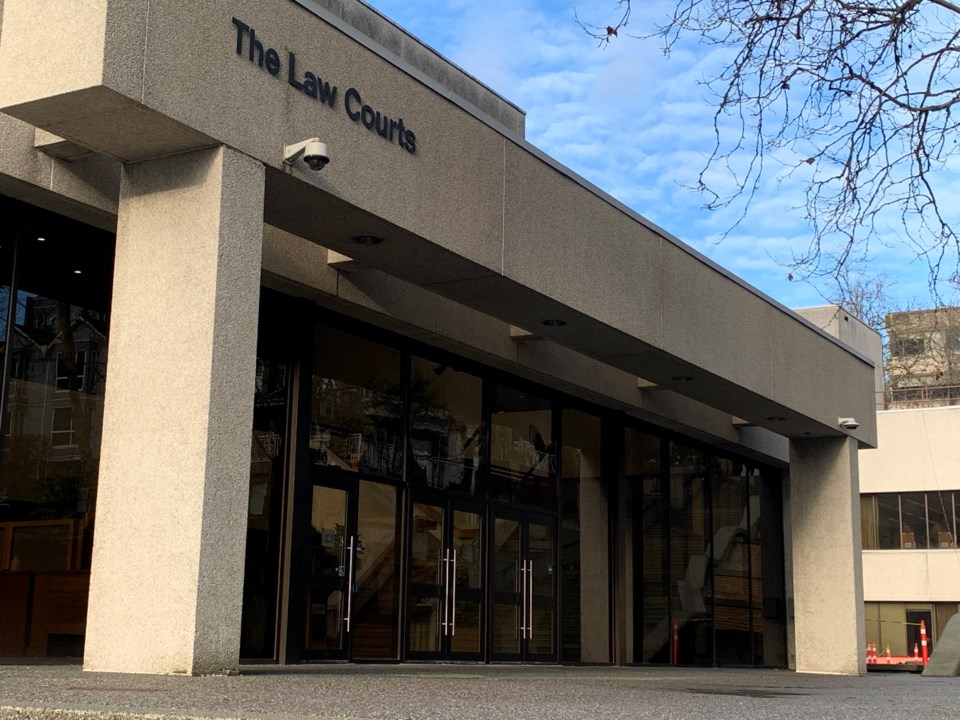A B.C. Supreme Court judge has sentenced a university security guard to a conditional sentence order of 18 months to be served in the community.
In her April decision convicting Jack Cruthers Hutchison, Justice Catherine Murray said the accused did not intend to kill Howard Hill on Sept. 30, 2020 at Trinity Western University (TWU), a private Christian university in Langley.
But then, she said, “That is not a defence to manslaughter.”
Before passing sentence, Murray paused to express how difficult the case was.
“It is truly a tragedy all around,” she said. “Two families have suffered immeasurably. The Hill family lost their beloved son and brother.”
Murray said the black-clad Hill was wandering through various student residences, rifling through rooms.
Murray said Hill “seemed out of it,” and students concerned for their safety and belongings called security.
Hutchison was the only security guard on duty that day. It was not a scheduled work day and he was filling in for a sick colleague.
Hutchison was first unable to find the man but then spotted him and called out for him to stop.
Hill began to run.
Hutchison tackled Hill, taking him to the ground. The security guard placed him in a neck restraint and held him there until police arrived.
“When police finally got there, Mr. Hill was unconscious,” Murray said. “He died in hospital a couple of days later after he was taken off life support.”
The Crown’s theory was that the incident was an assault and Hill died as a result of an unlawful act.
Murray found once Hill stopped resisting, he was no longer a threat and ruled Hutchison’s continued restraint disproportionate to the situation.
“Accordingly, I am satisfied that Mr. Hutchison committed the unlawful act of assault,” she said, noting the intentionally applied restraint had a foreseeable risk of bodily harm.
“I reject the defence of accident and find that the continued and prolonged use of the headlock was objectively dangerous in the circumstances,” she said.
A pathologist testified the prolonged pressure on vital blood vessels on the right side of Hill’s neck cut off blood flow to his brain. This caused brain damage, unconsciousness and ultimately his death, court heard.
“I have no doubt that Mr. Hutchison legally caused Mr. Hill’s death by holding him in a headlock for an extended period of time thus exerting fatal pressure on vital blood vessels in Mr. Hill’s neck,” Murray said.
The judge said the incident has clearly troubled Hutchison.
“I have watched Mr. Hutchison. He is clearly a broken man,” she said, adding it was clear Hutchison would be affected by what happened for the rest of his life.
“I accept that. I further accept that Mr. Hutchison will likely never forgive himself for Mr. Hill’s death,” the judge ruled.
As part of the conditional sentence, Hutchison must abide by a curfew and remain in his residence between the hours of midnight and 6 a.m. He must also perform 120 hours of community service.




